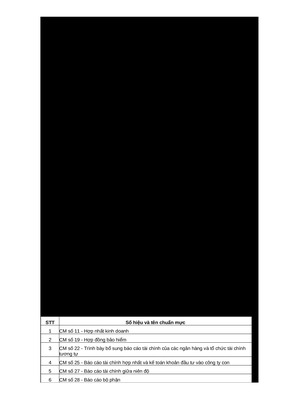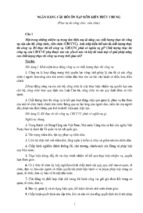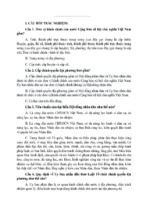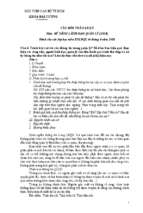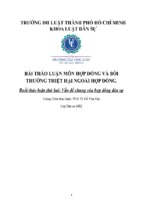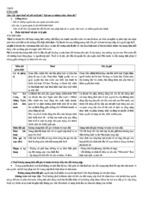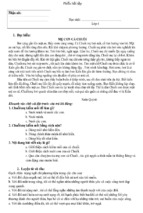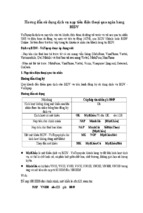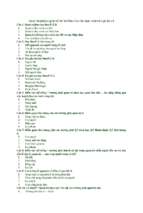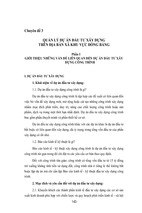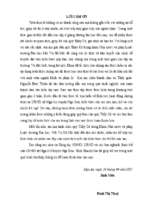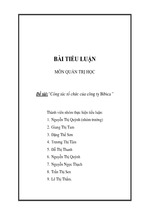International Acclaim for Bernhard Schlink’s
“Arresting, philosophically elegant, morally complex. . . . Mr. Schlink tells this story with
marvelous directness and simplicity, his writing stripped bare of any of the standard
gimmicks of dramatization.”
—The New York Times
“The best novel I read this year . . . an unforgettable short tale about love, horror and mercy.”
—Neil Ascherson,
Independent on Sunday Books of the Year
“Breathtaking . . . a novel that sucks you in with its power, so that once you start to read, you
cannot put it down. Truly exciting.”
—Focus Munich
“One of the most successful, one of the richest, one of the most overwhelming novels I have
read for a very long time . . . entirely new and profoundly original.”
—Jorge Semprun, Le Journal du Dimanche
“Superb.”
Bernhard Schlink
—Le Monde
Bernhard Schlink was born in Germany in 1944. A professor of law at the University of
Berlin and a practicing judge, he is also the author of several prize-winning crime novels. He
lives in Bonn and Berlin.
Vintage International
VINTAGE BOOKS
A DIVISION OF RANDOM HOUSE, INC.
NEW YORK
Bernhard Schlink
TRANSLATED FROM THE GERMAN
BY CAROL BROWN JANEWAY
Vintage International
VINTAGE BOOKS
A D I V I S I O N O F R A N D O M H O U S E, I N C.
NEW YORK
CONTENTS
PART ONE
CHAPTER ONE
CHAPTER TWO
CHAPTER THREE
CHAPTER FOUR
CHAPTER FIVE
CHAPTER SIX
CHAPTER SEVEN
CHAPTER EIGHT
CHAPTER NINE
CHAPTER TEN
CHAPTER ELEVEN
CHAPTER TWELVE
CHAPTER THIRTEEN
CHAPTER FOURTEEN
CHAPTER FIFTEEN
CHAPTER SIXTEEN
CHAPTER SEVENTEEN
PART TWO
CHAPTER ONE
CHAPTER TWO
CHAPTER THREE
CHAPTER FOUR
CHAPTER FIVE
CHAPTER SIX
CHAPTER SEVEN
CHAPTER EIGHT
CHAPTER NINE
CHAPTER TEN
CHAPTER ELEVEN
CHAPTER TWELVE
CHAPTER THIRTEEN
CHAPTER FOURTEEN
CHAPTER FIFTEEN
CHAPTER SIXTEEN
CHAPTER SEVENTEEN
PART THREE
CHAPTER ONE
CHAPTER TWO
CHAPTER THREE
CHAPTER FOUR
CHAPTER FIVE
CHAPTER SIX
CHAPTER SEVEN
CHAPTER EIGHT
CHAPTER NINE
CHAPTER TEN
CHAPTER ELEVEN
CHAPTER TWELVE
PART ONE
CHAPTER ONE
W HEN I was fifteen, I got hepatitis. It started in the fall and lasted until spring. As the old
year darkened and turned colder, I got weaker and weaker. Things didn’t start to improve
until the new year. January was warm, and my mother moved my bed out onto the balcony. I
saw sky, sun, clouds, and heard the voices of children playing in the courtyard. As dusk came
one evening in February, there was the sound of a blackbird singing.
The first time I ventured outside, it was to go from Blumenstrasse, where we lived on the
second floor of a massive turn-of-the-century building, to Bahnhofstrasse. That’s where I’d
thrown up on the way home from school one day the previous October. I’d been feeling weak
for days, in a way that was completely new to me. Every step was an effort. When I was faced
with stairs either at home or at school, my legs would hardly carry me. I had no appetite. Even
if I sat down at the table hungry, I soon felt queasy. I woke up every morning with a dry
mouth and the sensation that my insides were in the wrong place and too heavy for my body. I
was ashamed of being so weak. I was even more ashamed when I threw up. That was another
thing that had never happened to me before. My mouth was suddenly full, I tried to swallow
everything down again, and clenched my teeth with my hand in front of my mouth, but it all
burst out of my mouth anyway straight through my fingers. I leaned against the wall of the
building, looked down at the vomit around my feet, and retched something clear and sticky.
When rescue came, it was almost an assault. The woman seized my arm and pulled me
through the dark entryway into the courtyard. Up above there were lines strung from window
to window, loaded with laundry. Wood was stacked in the courtyard; in an open workshop a
saw screamed and shavings flew. The woman turned on the tap, washed my hand first, and
then cupped both of hers and threw water in my face. I dried myself with a handkerchief.
“Get that one!” There were two pails standing by the faucet; she grabbed one and filled it. I
took the other one, filled it, and followed her through the entryway. She swung her arm, the
water sluiced down across the walk and washed the vomit into the gutter. Then she took my
pail and sent a second wave of water across the walk.
When she straightened up, she saw I was crying. “Hey, kid,” she said, startled, “hey, kid”—
and took me in her arms. I wasn’t much taller than she was, I could feel her breasts against
my chest. I smelled the sourness of my own breath and felt her fresh sweat as she held me,
and didn’t know where to look. I stopped crying.
She asked me where I lived, put the pails down in the entryway, and took me home, walking
beside me holding my schoolbag in one hand and my arm in the other. It’s no great distance
from Bahnhofstrasse to Blumenstrasse. She walked quickly, and her decisiveness helped me
to keep pace with her. She said goodbye in front of our building.
That same day my mother called in the doctor, who diagnosed hepatitis. At some point I told
my mother about the woman. If it hadn’t been for that, I don’t think I would have gone to see
her. But my mother simply assumed that as soon as I was better, I would use my pocket
money to buy some flowers, go introduce myself, and say thank you, which was why at the
end of February I found myself heading for Bahnhofstrasse.
CHAPTER TWO
T HE BUILDING on Bahnhofstrasse is no longer there. I don’t know when or why it was torn
down. I was away from my hometown for many years. The new building, which must have
been put up in the seventies or eighties, has five floors plus finished space under the roof, is
devoid of balconies or arched windows, and its smooth façade is an expanse of pale plaster. A
plethora of doorbells indicates a plethora of tiny apartments, with tenants moving in and out
as casually as you would pick up and return a rented car. There’s a computer store on the
ground floor where once there were a pharmacy, a supermarket, and a video store.
The old building was as tall, but with only four floors, a first floor of faceted sandstone
blocks, and above it three floors of brickwork with sandstone arches, balconies, and window
surrounds. Several steps led up to the first floor and the stairwell; they were wide at the
bottom, narrower above, set between walls topped with iron banisters and curving outwards at
street level. The front door was flanked by pillars, and from the corners of the architrave one
lion looked up Bahnhofstrasse while another looked down. The entryway through which the
woman had led me to the tap in the courtyard was a side entrance.
I had been aware of this building since I was a little boy. It dominated the whole row. I used
to think that if it made itself any heavier and wider, the neighboring buildings would have to
move aside and make room for it. Inside, I imagined a stairwell with plaster moldings,
mirrors, and an oriental runner held down with highly polished brass rods. I assumed that
grand people would live in such a grand building. But because the building had darkened with
the passing of the years and the smoke of the trains, I imagined that the grand inhabitants
would be just as somber, and somehow peculiar—deaf or dumb or hunchbacked or lame.
In later years I dreamed about the building again and again. The dreams were similar,
variations on one dream and one theme. I’m walking through a strange town and I see the
house. It’s one in a row of buildings in a district I don’t know. I go on, confused, because the
house is familiar but its surroundings are not. Then I realize that I’ve seen the house before.
I’m not picturing Bahnhofstrasse in my hometown, but another city, or another country. For
example, in my dream I’m in Rome, see the house, and realize I’ve seen it already in Bern.
This dream recognition comforts me; seeing the house again in different surroundings is no
more surprising than encountering an old friend by chance in a strange place. I turn around,
walk back to the house, and climb the steps. I want to go in. I turn the door handle.
If I see the house somewhere in the country, the dream is more long-drawn-out, or I
remember its details better. I’m driving a car. I see the house on the right and keep going,
confused at first only by the fact that such an obviously urban building is standing there in the
middle of the countryside. Then I realize that this is not the first time I’ve seen it, and I’m
doubly confused. When I remember where I’ve seen it before, I turn around and drive back.
In the dream, the road is always empty, as I can turn around with my tires squealing and race
back. I’m afraid I’ll be too late, and I drive faster. Then I see it. It is surrounded by fields,
rape or wheat or vines in the Palatinate, lavender in Provence. The landscape is flat, or at most
gently rolling. There are no trees. The day is cloudless, the sun is shining, the air shimmers
and the road glitters in the heat. The fire walls make the building look unprepossessing and
cut off. They could be the firewalls of any building. The house is no darker than it was on
Bahnhofstrasse, but the windows are so dusty that you can’t see anything inside the rooms,
not even the curtains; it looks blind.
I stop on the side of the road and walk over to the entrance. There’s nobody about, not a
sound to be heard, not even a distant engine, a gust of wind, a bird. The world is dead. I go up
the steps and turn the knob.
But I do not open the door. I wake up knowing simply that I took hold of the knob and turned
it. Then the whole dream comes back to me, and I know that I’ve dreamed it before.
CHAPTER THREE
I DIDN’T KNOW the woman’s name. Clutching my bunch of flowers, I hesitated in front of
the door and all the bells. I would rather have turned around and left, but then a man came out
of the building, asked who I was looking for, and directed me to Frau Schmitz on the third
floor.
No decorative plaster, no mirrors, no runner. Whatever unpretentious beauty the stairwell
might once have had, it could never have been comparable to the grandeur of the façade, and
it was long gone in any case. The red paint on the stairs had worn through in the middle, the
stamped green linoleum that was glued on the walls to shoulder height was rubbed away to
nothing, and bits of string had been stretched across the gaps in the banisters. It smelled of
cleaning fluid. Perhaps I only became aware of all this some time later. It was always just as
shabby and just as clean, and there was always the same smell of cleaning fluid, sometimes
mixed with the smell of cabbage or beans, or fried food or boiling laundry.
I never learned a thing about the other people who lived in the building apart from these
smells, the mats outside the apartment doors, and the nameplates under the doorbells. I cannot
even remember meeting another tenant on the stairs.
Nor do I remember how I greeted Frau Schmitz. I had probably prepared two or three
sentences about my illness and her help and how grateful I was, and recited them to her. She
led me into the kitchen.
It was the largest room in the apartment, and contained a stove and sink, a tub and a boiler, a
table, two chairs, a kitchen cabinet, a wardrobe, and a couch with a red velvet spread thrown
over it. There was no window. Light came in through the panes of the door leading out onto
the balcony—not much light; the kitchen was only bright when the door was open. Then you
heard the scream of the saws from the carpenter’s shop in the yard and smelled the smell of
wood.
The apartment also had a small, cramped living room with a dresser, a table, four chairs, a
wing chair, and a coal stove. It was almost never heated in winter, nor was it used much in
summer either. The window faced Bahnhofstrasse, with a view of what had been the railroad
station, but was now being excavated and already in places held the freshly laid foundations
of the new courthouse and administration buildings. Finally, the apartment also had a
windowless toilet. When the toilet smelled, so did the hall.
I don’t remember what we talked about in the kitchen. Frau Schmitz was ironing; she had
spread a woolen blanket and a linen cloth over the table; lifting one piece of laundry after
another from the basket, she ironed them, folded them, and laid them on one of the two chairs.
I sat on the other. She also ironed her underwear, and I didn’t want to look, but I couldn’t help
looking. She was wearing a sleeveless smock, blue with little pale red flowers on it. Her
shoulder-length, ash-blond hair was fastened with a clip at the back of her neck. Her bare
arms were pale. Her gestures of lifting the iron, using it, setting it down again, and then
folding and putting away the laundry were an exercise in slow concentration, as were her
movements as she bent over and then straightened up again. Her face as it was then has been
overlaid in my memory by the faces she had later. If I see her in my mind’s eye as she was
then, she doesn’t have a face at all, and I have to reconstruct it. High forehead, high
cheekbones, pale blue eyes, full lips that formed a perfect curve without any indentation,
square chin. A broad-planed, strong, womanly face. I know that I found it beautiful. But I
cannot recapture its beauty.
CHAPTER FOUR
“W AIT,” SHE said as I got up to go. ‘I have to leave too, and I’ll walk with you.
I waited in the hall while she changed her clothes in the kitchen. The door was open a crack.
She took off the smock and stood there in a bright green slip. Two stockings were hanging
over the back of the chair. Picking one up, she gathered it into a roll using one hand, then the
other, then balanced on one leg as she rested the heel of her other foot against her knee,
leaned forward, slipped the rolled-up stocking over the tip of her foot, put her foot on the
chair as she smoothed the stocking up over her calf, knee, and thigh, then bent to one side as
she fastened the stocking to the garter belt. Straightening up, she took her foot off the chair
and reached for the other stocking. I couldn’t take my eyes off her. Her neck and shoulders,
her breasts, which the slip veiled rather than concealed, her hips which stretched the slip tight
as she propped her foot on her knee and then set it on the chair, her leg, pale and naked, then
shimmering in the silky stocking.
She felt me looking at her. As she was reaching for the other stocking, she paused, turned
towards the door, and looked straight at me. I can’t describe what kind of look it was—
surprised, skeptical, knowing, reproachful. I turned red. For a fraction of a second I stood
there, my face burning. Then I couldn’t take it any more. I fled out of the apartment, down the
stairs, and into the street.
I dawdled along. Bahnhofstrasse, Häusserstrasse, Blumenstrasse—it had been my way to
school for years. I knew every building, every garden, and every fence, the ones that were
repainted every year and the ones that were so gray and rotten that I could crumble the wood
in my hand, the iron railings that I ran along as a child banging a stick against the posts and
the high brick wall behind which I had imagined wonderful and terrible things, until I was
able to climb it, and see row after boring row of neglected beds of flowers, berries, and
vegetables. I knew the cobblestones in their layer of tar on the road, and the changing surface
of the sidewalk, from flagstones to little lumps of basalt set in wave patterns, tar, and gravel.
It was all familiar. When my heart stopped pounding and my face was no longer scarlet, the
encounter between the kitchen and the hall seemed a long way away. I was angry with myself.
I had run away like a child, instead of keeping control of the situation, as I thought I should. I
wasn’t nine years old anymore, I was fifteen. That didn’t mean I had any idea what keeping
control would have entailed.
The other puzzle was the actual encounter that had taken place between the kitchen and the
hall. Why had I not been able to take my eyes off her? She had a very strong, feminine body,
more voluptuous than the girls I liked and watched. I was sure I wouldn’t even have noticed
her if I’d seen her at the swimming pool. Nor had she been any more naked than the girls and
women I had already seen at the swimming pool. And besides, she was much older than the
girls I dreamed about. Over thirty? It’s hard to guess ages when you’re not that old yourself
and won’t be anytime soon.
Years later it occurred to me that the reason I hadn’t been able to take my eyes off her was not
just her body, but the way she held herself and moved. I asked my girlfriends to put on
stockings, but I didn’t want to explain why, or to talk about the riddle of what had happened
between the kitchen and the hall. So my request was read as a desire for garters and high heels
and erotic extravaganza, and if it was granted, it was done as a come-on. There had been none
of that when I had found myself unable to look away. She hadn’t been posing or teasing me. I
don’t remember her ever doing that. I remember that her body and the way she held it and
moved sometimes seemed awkward. Not that she was particularly heavy. It was more as if
she had withdrawn into her own body, and left it to itself and its own quiet rhythms,
unbothered by any input from her mind, oblivious to the outside world. It was the same
obliviousness that weighed in her glance and her movements when she was pulling on her
stockings. But then she was not awkward, she was slow-flowing, graceful, seductive—a
seductiveness that had nothing to do with breasts and hips and legs, but was an invitation to
forget the world in the recesses of the body.
I knew none of this—if indeed I know any of it now and am not just making patterns in the
air. But as I thought back then on what had excited me, the excitement came back. To solve
the riddle, I made myself remember the whole encounter, and then the distance I had created
by turning it into a riddle dissolved, and I saw it all again, and again I couldn’t take my eyes
off her.
CHAPTER FIVE
A WEEK LATER I was standing at her door again.
For a week I had tried not to think about her. But I had nothing else to occupy or distract me;
the doctor was not ready to let me go back to school, I was bored stiff with books after
months of reading, and although friends still came to see me, I had been sick for so long that
their visits could no longer bridge the gap between their daily lives and mine, and became
shorter and shorter. I was supposed to go for walks, a little further each day, without
overexerting myself. I could have used the exertion.
Being ill when you are a child or growing up is such an enchanted interlude! The outside
world, the world of free time in the yard or the garden or on the street, is only a distant
murmur in the sickroom. Inside, a whole world of characters and stories proliferates out of the
books you read. The fever that weakens your perception as it sharpens your imagination turns
the sickroom into someplace new, both familiar and strange; monsters come grinning out of
the patterns on the curtains and the carpet, and chairs, tables, bookcases, and wardrobes burst
out of their normal shapes and become mountains and buildings and ships you can almost
touch although they’re far away. Through the long hours of the night you have the church
clock for company and the rumble of the occasional passing car that throws its headlights
across the walls and ceiling. These are hours without sleep, which is not to say that they’re
sleepless, because on the contrary, they’re not about lack of anything, they’re rich and full.
Desires, memories, fears, passions form labyrinths in which we lose and find and then lose
ourselves again. They are hours when anything is possible, good or bad.
This passes as you get better. But if the illness has lasted long enough, the sickroom is
impregnated with it and although you’re convalescing and the fever has gone, you are still
trapped in the labyrinth.
I awoke every day feeling guilty, sometimes with my pajama pants damp or stained. The
images and scenes in my dreams were not right. I knew I would not be scolded by my mother,
or the pastor who had instructed me for my confirmation and whom I admired, or by my older
sister who was the confidante of all my childhood secrets. But they would lecture me with
loving concern, which was worse than being scolded. It was particularly wrong that when I
was not just idly dreaming, I actively fantasized images and scenes.
I don’t know where I found the courage to go back to Frau Schmitz. Did my moral upbringing
somehow turn against itself? If looking at someone with desire was as bad as satisfying the
desire, if having an active fantasy was as bad as the act you were fantasizing—then why not
the satisfaction and the act itself? As the days went on, I discovered that I couldn’t stop
thinking sinful thoughts. In which case I also wanted the sin itself.
There was another way to look at it. Going there might be dangerous. But it was obviously
impossible for the danger to act itself out. Frau Schmitz would greet me with surprise, listen
to me apologize for my strange behavior, and amicably say goodbye. It was more dangerous
not to go; I was running the risk of becoming trapped in my own fantasies. So I was doing the
right thing by going. She would behave normally, I would behave normally, and everything
would be normal again.
That is how I rationalized it back then, making my desire an entry in a strange moral
accounting, and silencing my bad conscience. But that was not what gave me the courage to
go to Frau Schmitz. It was one thing to tell myself that my mother, my admired pastor, and
my older sister would not try to stop me if they really thought about it, but would in fact insist
that I go. Actually going was something else again. I don’t know why I did it. But today I can
recognize that events back then were part of a lifelong pattern in which thinking and doing
have either come together or failed to come together—I think, I reach a conclusion, I turn the
conclusion into a decision, and then I discover that acting on the decision is something else
entirely, and that doing so may proceed from the decision, but then again it may not. Often
enough in my life I have done things I had not decided to do. Something—whatever that may
be—goes into action; “it” goes to the woman I don’t want to see anymore, “it” makes the
remark to the boss that costs me my head, “it” keeps on smoking although I have decided to
quit, and then quits smoking just when I’ve accepted the fact that I’m a smoker and always
will be. I don’t mean to say that thinking and reaching decisions have no influence on
behavior. But behavior does not merely enact whatever has already been thought through and
decided. It has its own sources, and is my behavior, quite independently, just as my thoughts
are my thoughts, and my decisions my decisions.
CHAPTER SIX
S HE WASN’T at home. The front door of the building stood ajar, so I went up the stairs, rang
the bell, and waited. Then I rang again. Inside the apartment the doors were open, as I could
see through the glass of the front door, and I could also make out the mirror, the wardrobe,
and the clock in the hall. I could hear it ticking.
I sat down on the stairs and waited. I wasn’t relieved, the way you can sometimes be when
you feel funny about a certain decision and afraid of the consequences and then relieved that
you’ve managed to carry out the former without incurring the latter. Nor was I disappointed. I
was determined to see her and to wait until she came.
The clock in the hall struck the quarter hour, then the half hour, then the hour. I tried to follow
its soft ticking and to count the nine hundred seconds between one stroke and the next, but I
kept losing track. The yard buzzed with the sound of the carpenter’s saws, the building
echoed with voices or music from one of the apartments, and a door opened and closed. Then
I heard slow, heavy, regular footsteps coming up the stairs. I hoped that whoever he was, he
lived on the second floor. If he saw me—how would I explain what I was doing there? But
the footsteps didn’t stop at the second floor. They kept coming. I stood up.
It was Frau Schmitz. In one hand she was carrying a coal scuttle, in the other a box of
briquets. She was wearing a uniform jacket and skirt, and I realized that she was a streetcar
conductor. She didn’t notice me until she reached the landing—she didn’t look annoyed, or
surprised, or mocking—none of the things I had feared. She looked tired. When she put down
the coke and was hunting in her jacket pocket for the key, coins fell out onto the floor. I
picked them up and gave them to her.
“There are two more scuttles down in the cellar. Will you fill them and bring them up? The
door’s open.”
I ran down the stairs. The door to the cellar was open, the light was on, and at the bottom of
the long cellar stairs I found a bunker made of boards with the door on the latch and a loose
padlock hanging from the open bolt. It was a large space, and the coke was piled all the way
up to the ceiling hatch through which it had been poured from the street into the cellar. On
one side of the door was a neat stack of briquets; on the other side were the coal scuttles.
I don’t know what I did wrong. At home I also fetched the coke from the cellar and never had
any problems. But then the coke at home wasn’t piled so high. Filling the first scuttle went
fine. As I picked up the second scuttle by the handles and tried to shovel the coke up off the
floor, the mountain began to move. From the top little pieces started bouncing down while the
larger ones followed more sedately; further down it all began to slide and there was a general
rolling and shifting on the floor. Black dust rose in clouds. I stood there, frightened, as the
lumps came down and hit me and soon I was up to my ankles in coke.
I got my feet out of the coke, filled the second scuttle, looked for a broom, and when I found
it I swept the lumps that had rolled out into the main part of the cellar back into the bunker,
latched the door, and carried the two scuttles upstairs.
She had taken off her jacket, loosened her tie and undone the top button, and was sitting at the
kitchen table with a glass of milk. She saw me, began to choke with laughter, and then let it
out in full-throated peals. She pointed at me and slapped her other hand on the table. “Look at
you, kid, just look at you!” Then I caught sight of my black face in the mirror over the sink,
and laughed too.
“You can’t go home like that. I’ll run you a bath and beat the dust out of your clothes.” She
went to the tub and turned on the faucet. The water ran steaming into the tub. “Take your
clothes off carefully, I don’t need black dust all over the kitchen.”
I hesitated, took off my sweater and shirt, and hesitated again. The water was rising quickly
and the tub was almost full.
“Do you want to take a bath in your shoes and pants? I won’t look, kid.” But when I had
turned off the faucet and taken off my underpants, she looked me over calmly. I turned red,
climbed into the tub, and submerged myself. When I came up again she was out on the
balcony with my clothes. I heard her beating the shoes against each other and shaking out my
pants and sweater. She called down something about coal dust and sawdust, someone called
back up to her, and she laughed. Back in the kitchen, she put my things on the chair. Glancing
quickly at me, she said, “Take the shampoo and wash your hair. I’ll bring a towel in a
minute,” then took something out of the wardrobe, and left the kitchen.
I washed myself. The water in the tub was dirty and I ran in some fresh so that I could wash
my head and face clean under the flow. Then I lay there, listening to the boiler roar, and
feeling the cool air on my face as it came through the half-open kitchen door, and the warm
water on my body. I was comfortable. It was an exciting kind of comfort and I got hard.
I didn’t look up when she came into the kitchen, until she was standing by the tub. She was
holding a big towel in her outstretched arms. “Come!” I turned my back as I stood up and
climbed out of the tub. From behind, she wrapped me in the towel from head to foot and
rubbed me dry. Then she let the towel fall to the floor. I didn’t dare move. She came so close
to me that I could feel her breasts against my back and her stomach against my behind. She
was naked too. She put her arms around me, one hand on my chest and the other on my
erection.
“That’s why you’re here!”
“I . . .” I didn’t know what to say. Not yes, but not no either. I turned around. I couldn’t see
much of her, we were standing too close. But I was overwhelmed by the presence of her
naked body. “You’re so beautiful!”
“Come on, kid, what are you talking about!” She laughed and wrapped her arms around my
neck. I put my arms around her too.
I was afraid: of touching, of kissing, afraid I wouldn’t please her or satisfy her. But when we
had held each other for a while, when I had smelled her smell and felt her warmth and her
strength, everything fell into place. I explored her body with my hands and mouth, our
mouths met, and then she was on top of me, looking into my eyes until I came and closed my
eyes tight and tried to control myself and then screamed so loud that she had to cover my
mouth with her hand to smother the sound.
CHAPTER SEVEN
T HE NEXT night I fell in love with her. I could barely sleep, I was yearning for her, I
dreamed of her, thought I could feel her until I realized that I was clutching the pillow or the
blanket. My mouth hurt from kissing. I kept getting erections, but I didn’t want to masturbate.
I wanted to be with her.
Did I fall in love with her as the price for her having gone to bed with me? To this day, after
spending the night with a woman, I feel I’ve been indulged and I must make it up somehow—
to her by trying at least to love her, and to the world by facing up to it.
One of my few vivid recollections of early childhood has to do with a winter morning when I
was four years old. The room I slept in at that time was unheated, and at night and first thing
in the morning it was often very cold. I remember the warm kitchen and the hot stove, a heavy
piece of iron equipment in which you could see the fire when you lifted out the plates and
rings with a hook, and which always held a basin of hot water ready. My mother had pushed a
chair up close to the stove for me to stand on while she washed and dressed me. I remember
the wonderful feeling of warmth, and how good it felt to be washed and dressed in this
warmth. I also remember that whenever I thought back to this afterwards, I always wondered
why my mother had been spoiling me like this. Was I ill? Had my brothers and sisters been
given something I hadn’t? Was there something coming later in the day that was nasty or
difficult that I had to get through?
Because the woman who didn’t yet have a name in my mind had so spoiled me that afternoon,
I went back to school the next day. It was also true that I wanted to show off my new
manliness. Not that I would ever have talked about it. But I felt strong and superior, and I
wanted to show off these feelings to the other kids and the teachers. Besides, I hadn’t talked
to her about it but I assumed that being a streetcar conductor she often had to work evenings
and nights. How would I see her every day if I had to stay home and wasn’t allowed to do
anything except my convalescent walks?
When I came home from her, my parents and brother and sisters were already eating dinner.
“Why are you so late? Your mother was worried about you.” My father sounded more
annoyed than concerned.
I said that I’d lost my way, that I’d wanted to walk through the memorial garden in the
cemetery to Molkenkur, but wandered around who knows where for a long time and ended up
in Nussloch. “I had no money, so I had to walk home from Nussloch.”
“You could have hitched a ride.” My younger sister sometimes did this, but my parents
disapproved.
My older brother snorted contemptuously. “Molkenkur and Nussloch are in completely
opposite directions.”
My older sister gave me a hard look.
“I’m going back to school tomorrow.”
“So pay attention in Geography. There’s north and there’s south, and the sun rises . . .”
My mother interrupted my brother. “The doctor said another three weeks.”
“If he can get all the way across the cemetery to Nussloch and back, he can also go to school.
It’s not his strength he’s lacking, it’s his brains.” As small boys, my brother and I beat up on
each other constantly, and later we fought with words. He was three years older than me, and
better at both. At a certain point I stopped fighting back and let his attacks dissipate into thin
air. Since then he had confined himself to grousing at me.
“What do you think?” My mother turned to my father. He set his knife and fork down on his
plate, leaned back, and folded his hands in his lap. He said nothing and looked thoughtful, the
way he always did when my mother talked to him about the children or the household. As
usual, I wondered whether he was really turning over my mother’s question in his mind, or
whether he was thinking about work. Maybe he did try to think about my mother’s question,
but once his mind started going, he could only think about work. He was a professor of
philosophy, and thinking was his life—thinking and reading and writing and teaching.
Sometimes I had the feeling that all of us in his family were like pets to him. The dog you
take for a walk, the cat you play with and that curls up in your lap, purring, to be stroked—
you can be fond of them, you can even need them to a certain extent, and nonetheless the
whole thing—buying pet food, cleaning up the cat box, and trips to the vet—is really too
much. Your life is elsewhere. I wish that we, his family, had been his life. Sometimes I also
wished that my grousing brother and my cheeky little sister were different. But that evening I
suddenly loved them all. My little sister. It probably wasn’t easy being the youngest of four,
and she needed to be cheeky just to hold her own. My older brother. We shared a bedroom,
which must be even harder for him than it was for me, and on top of that, since I’d been ill
he’d had to let me have the room to myself and sleep on the sofa in the living room. How
could he not nag me? My father. Why should we children be his whole life? We were
growing up and soon we’d be adults and out of the house.
I felt as if we were sitting all together for the last time around the round table under the fivearmed, five-candled brass chandelier, as if we were eating our last meal off the old plates with
the green vine-leaf border, as if we would never talk to each other so intimately again. I felt as
if I were saying goodbye. I was still there and already gone. I was homesick for my mother
and father and my brother and sisters, and I longed to be with the woman.
My father looked over at me. “ ‘I’m going back to school tomorrow’—that’s what you said,
isn’t it?”
“Yes.” So he had noticed that it was him I’d asked and not my mother, and also that I had not
said I was wondering whether I should go back to school or not.
He nodded. “Let’s have you go back to school. If it gets to be too much for you, you’ll just
stay home again.”
I was pleased. And at the same time I felt I’d just said my final goodbyes.
CHAPTER EIGHT
F OR THE next few days, the woman was working the early shift. She came home at noon,
and I cut my last class every day so as to be waiting for her on the landing outside her
apartment. We showered and made love, and just before half past one I scrambled into my
clothes and ran out the door. Lunch was at one-thirty. On Sundays lunch was at noon, but her
early shift also started and ended later.
I would have preferred to skip the shower. She was scrupulously clean, she showered every
morning, and I liked the smell of perfume, fresh perspiration, and streetcar that she brought
with her from work. But I also liked her wet, soapy body; I liked to let her soap me and I liked
to soap her, and she taught me not to do it bashfully, but with assurance and possessive
thoroughness. When we made love, too, she took possession of me as a matter of course. Her
mouth took mine, her tongue played with my tongue, she told me where to touch her and
how, and when she rode me until she came, I was there only because she took pleasure in me
and on me. I don’t mean to say that she lacked tenderness and didn’t give me pleasure. But
she did it for her own playful enjoyment, until I learned to take possession of her too.
That came later. I never completely mastered it. And for a long time I didn’t miss it. I was
young, and I came quickly, and when I slowly came back alive again afterwards, I liked to
have her take possession of me. I would look at her when she was on top of me, her stomach
which made a deep crease above her navel, her breasts, the right one the tiniest bit larger than
the left, her face and open mouth. She would lean both hands against my chest and throw
them up at the last moment, as she gave a toneless sobbing cry that frightened me the first
time, and that later I eagerly awaited.
Afterwards we were exhausted. She often fell asleep on top of me. I would listen to the saws
in the yard and the loud cries of the workers who operated them and had to shout to make
themselves heard. When the saws fell silent, the sound of the traffic echoed faintly in the
kitchen. When I heard children calling and playing, I knew that school was out and that it was
past one o’clock. The neighbor who came home at lunchtime scattered birdseed on his
balcony, and the doves came and cooed.
“What’s your name?” I asked her on the sixth or seventh day. She had fallen asleep on me and
was just waking up. Until then I avoided saying anything to her that required me to choose
either the formal or the familiar form of address.
She stared. “What?”
“What’s your name?”
“Why do you want to know?” She looked at me suspiciously.
“You and I . . . I know your last name, but not your first. I want to know your first name.
What’s the matter with . . .”
She laughed. “Nothing, kid, there’s nothing wrong with that. My name is Hanna.” She kept
on laughing, didn’t stop, and it was contagious.
“You looked at me so oddly.”
“I was still half asleep. What’s yours?”
I thought she knew. At that time it was the in thing not to carry your schoolbooks in a bag but
under your arm, and when I put them on her kitchen table, my name was on the front. But she
hadn’t paid any attention to them.
“My name is Michael Berg.”
“Michael, Michael, Michael.” She tried out the name. “My kid’s called Michael, he’s in
college.”
“In high school.”
“In high school, he’s what, seventeen?”
I was proud at the two extra years she’d given me, and nodded.
“He’s seventeen and when he grows up he wants to be a famous . . .” She hesitated.
“I don’t know what I want to be.”
“But you study hard.”
“Sort of.” I told her she was more important to me than school and my studies. And I wished I
were with her more often. “I’ll have to repeat a class in any case.”
“What class?” It was the first real conversation we’d had with each other.
“Tenth grade. I’ve missed too much in the last months while I was ill. If I still wanted to
move up next year I’d have to work like an idiot. I’d also have to be in school right now.” I
told her I was cutting classes.
“Out.” She threw back the coverlet. “Get out of my bed. And if you don’t want to do your
work, don’t come back. Your work is idiotic? Idiotic? What do you think selling and
punching tickets is?” She got out of bed, stood naked in the kitchen being a conductor. With
her left hand she opened the little holder with the blocks of tickets, using her left thumb,
covered with a rubber thimble, to pull off two tickets, flipped her right hand to get hold of the
punch that hung from her wrist, and made two holes. “Two to Rohrbach.” She dropped the
punch, reached out her hand for a bill, opened the purse at her waist, put the money in,
snapped it shut again, and squeezed the change out of the coin holder that was attached to it.
“Who still doesn’t have a ticket?” She looked at me. “Idiotic—you don’t know what idiotic
is.”
I sat on the edge of the bed. I was stunned. “I’m sorry. I’ll do my work. I don’t know if I’ll
make it, school only has another six weeks to go. I’ll try. But I won’t get through it if I can’t
see you anymore.” I . . .” At first I wanted to say, I love you. But then I didn’t. Maybe she
was right, of course she was right. But she had no right to demand that I do more at school,
and make that the condition for our seeing each other again. “I can’t not see you.”
The clock in the hall struck one-thirty. “You have to go.” She hesitated. “From tomorrow on
I’m working the main shift. I’ll be home at five-thirty and you can come. Provided you work
first.”
We stood facing each other naked, but she couldn’t have seemed more dismissive if she’d had
on her uniform. I didn’t understand what was going on. Was she thinking of me? Or of
herself? If my schoolwork is idiotic, that makes her work even more so—that’s what upset
her? But I hadn’t ever said that my work or hers was idiotic. Or was it that she didn’t want a
failure for a lover? But was I her lover? What was I to her? I dressed, dawdling, and hoped
she would say something. But she said nothing. Then I had all my clothes on and she was still
standing there naked, and as I kissed her goodbye, she didn’t respond.
CHAPTER NINE
W HY DOES it make me so sad when I think back to that time? Is it yearning for past
happiness—for I was happy in the weeks that followed, in which I really did work like a
lunatic and passed the class, and we made love as if nothing else in the world mattered. Is it
the knowledge of what came later, and that what came out afterwards had been there all
along?
Why? Why does what was beautiful suddenly shatter in hindsight because it concealed dark
truths? Why does the memory of years of happy marriage turn to gall when our partner is
revealed to have had a lover all those years? Because such a situation makes it impossible to
be happy? But we were happy! Sometimes the memory of happiness cannot stay true because
it ended unhappily. Because happiness is only real if it lasts forever? Because things always
end painfully if they contained pain, conscious or unconscious, all along? But what is
unconscious, unrecognized pain?
I think back to that time and I see my former self. I wore the well-cut suits which had come
down to me from a rich uncle, now dead, along with several pairs of two-tone shoes, black
and brown, black and white, suede and calf. My arms and legs were too long, not for the suits,
which my mother had let down for me, but for my own movements. My glasses were a cheap
over-the-counter pair and my hair a tangled mop, no matter what I did. In school I was neither
good nor bad; I think that many of the teachers didn’t really notice me, nor did the students
who dominated the class. I didn’t like the way I looked, the way I dressed and moved, what I
achieved and what I felt I was worth. But there was so much energy in me, such belief that
one day I’d be handsome and clever and superior and admired, such anticipation when I met
new people and new situations. Is that what makes me sad? The eagerness and belief that
filled me then and exacted a pledge from life that life could never fulfill? Sometimes I see the
same eagerness and belief in the faces of children and teenagers and the sight brings back the
same sadness I feel in remembering myself. Is this what sadness is all about? Is it what comes
over us when beautiful memories shatter in hindsight because the remembered happiness fed
not just on actual circumstances but on a promise that was not kept?
She—I should start calling her Hanna, just as I started calling her Hanna back then—she
certainly didn’t nourish herself on promises, but was rooted in the here and now.
I asked her about her life, and it was as if she rummaged around in a dusty chest to get me the
answers. She had grown up in a German community in Rumania, then come to Berlin at the
age of sixteen, taken a job at the Siemens factory, and ended up in the army at twenty-one.
Since the end of the war, she had done all manner of jobs to get by. She had been a streetcar
conductor for several years; what she liked about the job was the uniform and the constant
motion, the changing scenery and the wheels rolling under her feet. But that was all she liked
about it. She had no family. She was thirty-six. She told me all this as if it were not her life
but somebody else’s, someone she didn’t know well and who wasn’t important to her. Things
I wanted to know more about had vanished completely from her mind, and she didn’t
understand why I was interested in what had happened to her parents, whether she had had
brothers and sisters, how she had lived in Berlin and what she’d done in the army. “The things
you ask, kid!”
It was the same with the future—of course I wasn’t hammering out plans for marriage and
future. But I identified more with Julien Sorel’s relationship with Madame de Renal than his
one with Mathilde de la Mole. I was glad to see Felix Krull end up in the arms of the mother
rather than the daughter. My sister, who was studying German literature, delivered a report at
the dinner table about the controversy as to whether Mr. von Goethe and Madame von Stein
had had a relationship, and I vigorously defended the idea, to the bafflement of my family. I
imagined how our relationship might be in five or ten years. I asked Hanna how she imagined
it. She didn’t even want to think ahead to Easter, when I wanted to take a bicycle trip with her
during the vacation. We could get a room together as mother and son, and spend the whole
night together.
Strange that this idea and suggesting it were not embarrassing to me. On a trip with my
mother I would have fought to get a room of my own. Having my mother with me when I
went to the doctor or to buy a new coat or to be picked up by her after a trip seemed to me to
be something I had outgrown. If we went somewhere together and we ran into my
schoolmates, I was afraid they would think I was a mama’s boy. But to be seen with Hanna,
who was ten years younger than my mother but could have been my mother, didn’t bother
me. It made me proud.
When I see a woman of thirty-six today, I find her young. But when I see a boy of fifteen, I
see a child. I am amazed at how much confidence Hanna gave me. My success at school got
my teachers’ attention and assured me of their respect. The girls I met noticed and liked it that
I wasn’t afraid of them. I felt at ease in my own body.
The memory that illuminates and fixes my first meetings with Hanna makes a single blur of
the weeks between our first conversation and the end of the school year. One reason for that is
we saw each other so regularly and our meetings always followed the same course. Another is
that my days had never been so full and my life had never been so swift and so dense. When I
think about the work I did in those weeks, it’s as if I had sat down at my desk and stayed there
until I had caught up with everything I’d missed during my hepatitis, learned all the
vocabulary, read all the texts, worked through all the theorems and memorized the periodic
table. I had already done the reading about the Weimar Republic and the Third Reich while I
was in my sickbed. And I remember our meetings in those weeks as one single long meeting.
After our conversation, they were always in the afternoon: if she was on the late shift, then
from three to four-thirty, otherwise until five-thirty. Dinner was at seven, and at first Hanna
forced me to be home on time. But after a while an hour and a half was not enough, and I
began to think up excuses to miss dinner.
It all happened because of reading aloud. The day after our conversation, Hanna wanted to
know what I was learning in school. I told her about Homer, Cicero, and Hemingway’s story
about the old man and his battle with the fish and the sea. She wanted to hear what Greek and
Latin sounded like, and I read to her from the Odyssey and the speeches against Cataline.
“Are you also learning German?”
“How do you mean?”
“Do you only learn foreign languages, or is there still stuff you have to learn in your own?”
“We read texts.” While I was sick, the class had read Emilia Galotti and Intrigues and Love,
and there was an essay due on them. So I had to read both, which I did after finishing
everything else. By then it was late, and I was tired, and next day I’d forgotten it all and had
to start all over again.
“So read it to me!”
“Read it yourself, I’ll bring it for you.”
“You have such a nice voice, kid, I’d rather listen to you than read it myself.”
“Oh, come on.”
But next day when I arrived and wanted to kiss her, she pulled back. “First you have to read.”
She was serious. I had to read Emilia Galotti to her for half an hour before she took me into
the shower and then to bed. Now I enjoyed showering too—the desire I felt when I arrived
had got lost as I read aloud to her. Reading a play out loud so that the various characters are
more or less recognizable and come to life takes a certain concentration. Lust reasserted itself
under the shower. So reading to her, showering with her, making love to her, and lying next to
her for a while afterwards—that became the ritual in our meetings.
She was an attentive listener. Her laugh, her sniffs of contempt, and her angry or enthusiastic
remarks left no doubt that she was following the action intently, and that she found both
Emilia and Luise to be silly little girls. Her impatience when she sometimes asked me to go
on reading seemed to come from the hope that all this imbecility would eventually play itself
out. “Unbelievable!” Sometimes this made even me eager to keep reading. As the days grew
longer, I read longer, so that I could be in bed with her in the twilight. When she had fallen
asleep lying on me, and the saw in the yard was quiet, and a blackbird was singing as the
colors of things in the kitchen dimmed until nothing remained of them but lighter and darker
shades of gray, I was completely happy.
CHAPTER TEN
O N THE first day of Easter vacation, I got up at four. Hanna was working the early shift.
She rode her bicycle to the streetcar depot at a quarter past four and was on the streetcar to
Schwetzingen at four-thirty. On the way out, she’d told me, the streetcar was often empty. It
only filled up on the return journey.
I got on at the second stop. The second car was empty; Hanna was standing in the first car
close to the driver. I debated whether I should sit in the first or the second car, and decided on
the second. It promised privacy, a hug, a kiss. But Hanna didn’t come. She must have seen
that I had been waiting at the stop and had got on. That’s why the streetcar had stopped. But
she stayed up with the driver, talking and joking. I could see them.
The streetcar passed one stop after another. No one was waiting to get on. The streets were
empty. It was not yet sunrise, and under a colorless sky everything lay pale in the pale light:
buildings, parked cars, the new leaves on the trees and first flowers on the shrubs, the gas
tank, and the mountains in the distance. The streetcar was moving slowly; presumably the
schedule was based both on stopping times and on the time between each stop, and so the
speed of travel had to be slowed down when there were no actual stops. I was imprisoned in
the slow-moving car. At first I sat, then I went and stood on the front platform and tried to
impale Hanna with my stare; I wanted her to feel my eyes in her back. After some time she
turned around and glanced at me. Then she went on talking to the driver. The journey
continued. Once we’d passed Eppelheim the rails were no longer in the surface of the road,
but laid alongside on a graveled embankment. The car accelerated, with the regular clacketyclack of a train. I knew that this stretch continued through various places and ended up in
Schwetzingen. But I felt rejected, exiled from the real world in which people lived and
worked and loved. It was as if I were condemned to ride forever in an empty car to nowhere.
Then I saw another stop, a shelter in the middle of open country. I pulled the cord the
conductors used to signal the driver to stop or start. The streetcar stopped. Neither Hanna nor
the driver looked back at me when they heard the bell. As I got off, I thought they were
looking at me and laughing. But I wasn’t sure. Then the streetcar moved on, and I looked after
it until it headed down into a dip and disappeared behind a hill. I was standing between the
embankment and the road, there were fields around me, and fruit trees, and further on a
nursery with greenhouses. The air was cool, and filled with the twittering of birds. Above the
mountains the pale sky shone pink.
The trip on the streetcar had been like a bad dream. If I didn’t remember its epilogue so
vividly, I would actually be tempted to think of it as a bad dream. Standing at the streetcar
stop, hearing the birds and watching the sun come up was like an awakening. But waking
from a bad dream does not necessarily console you. It can also make you fully aware of the
horror you just dreamed, and even of the truth residing in that horror. I set off towards home
in tears, and couldn’t stop crying until I reached Eppelheim.
I walked all the way back. I tried more than once to hitch a ride. When I was halfway there,
the streetcar passed me. It was full. I didn’t see Hanna.
I was waiting for her on the landing outside her apartment at noon, miserable, anxious, and
furious.
“Are you cutting school again?”
“I’m on vacation. What was going on this morning?”
She unlocked the door and I followed her into the apartment and into the kitchen.
“What do you mean, what was going on this morning?”
“Why did you behave as if you didn’t know me? I wanted . . .”
“I behaved as if I didn’t know you?” She turned around and stared at me coldly. “You didn’t
want to know me. Getting into the second car when you could see I was in the first.”
“Why would I get up at four-thirty on my first day of vacation to ride to Schwetzingen? Just
to surprise you, because I thought you’d be happy. I got into the second car . . .”
“You poor baby. Up at four-thirty, and on your vacation too.”
I had never seen her sarcastic before. She shook her head.
“How should I know why you’re going to Schwetzingen? How should I know why you
choose not to know me? It’s your business, not mine. Would you leave now?”
I can’t describe how furious I was. “That’s not fair, Hanna. You knew, you had to know that I
only got in the car to be with you. How can you believe I didn’t want to know you? If I didn’t,
I would not have got on at all.”
“Oh, leave me alone. I already told you, what you do is your business, not mine.” She had
moved so that the kitchen table was between us; everything in her look, her voice, and her
gestures told me I was an intruder and should leave.
I sat down on the sofa. She had treated me badly and I had wanted to call her on it. But I
hadn’t got through to her. Instead, she was the one who’d attacked me. And I became
uncertain. Could she be right, not objectively, but subjectively? Could she have, must she
have misunderstood me? Had I hurt her, unintentionally, against my will, but hurt her
anyway?
- Xem thêm -


